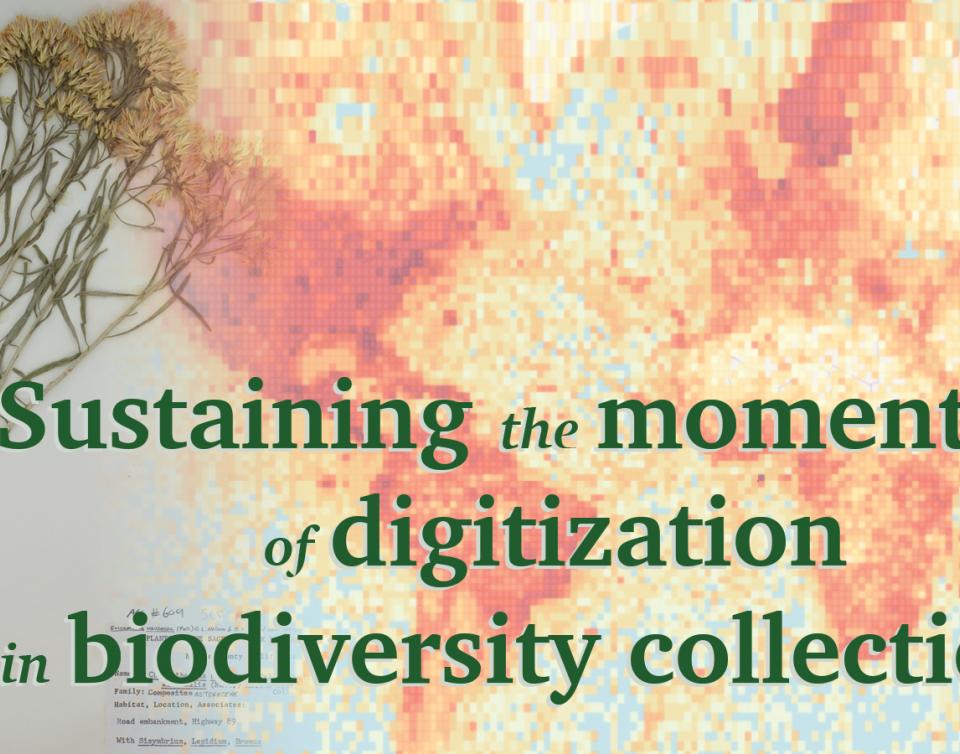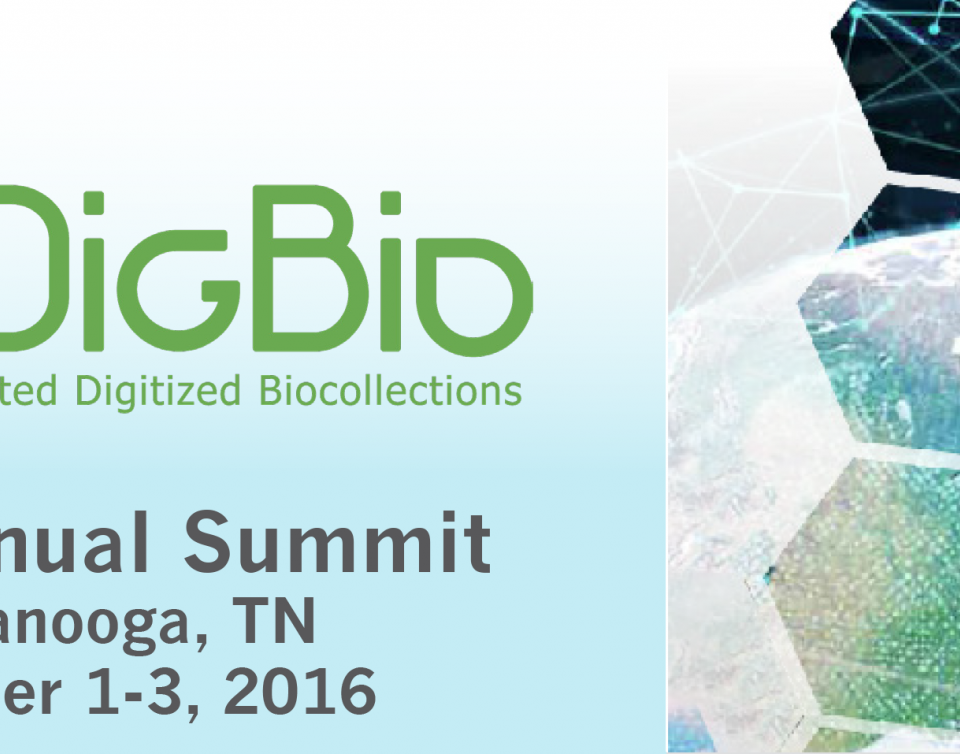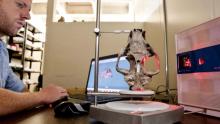ADBC
2020 TCN and PEN Awards
Welcome to all of the newly NSF-funded Advancing Digitization of Biodiversity Collections (ADBC) projects. This year we have three new Thematic Collections Networks (TCNs) and 13 Partners to Existing Networks (PENs) joining the community.
2020 TCNs:
2019 TCN and PEN Awards
Welcome to all of the newly NSF-funded Advancing Digitization of Biodiversity Collections (ADBC) projects. This year we have three new Thematic Collections Networks (TCNs) and six Partners to Existing Networks (PENs) joining the community.
2019 TCNs:
ADBC Program Background and History
An estimated 1.8 million named species of organisms exist on Earth today and many more are now extinct. This rich diversity is documented through research collections of fossil and extant organisms housed in natural history museums, universities, field facilities, botanical gardens, state surveys, and other institutions maintaining collection facilities.
ADBC Summit 2017 Report
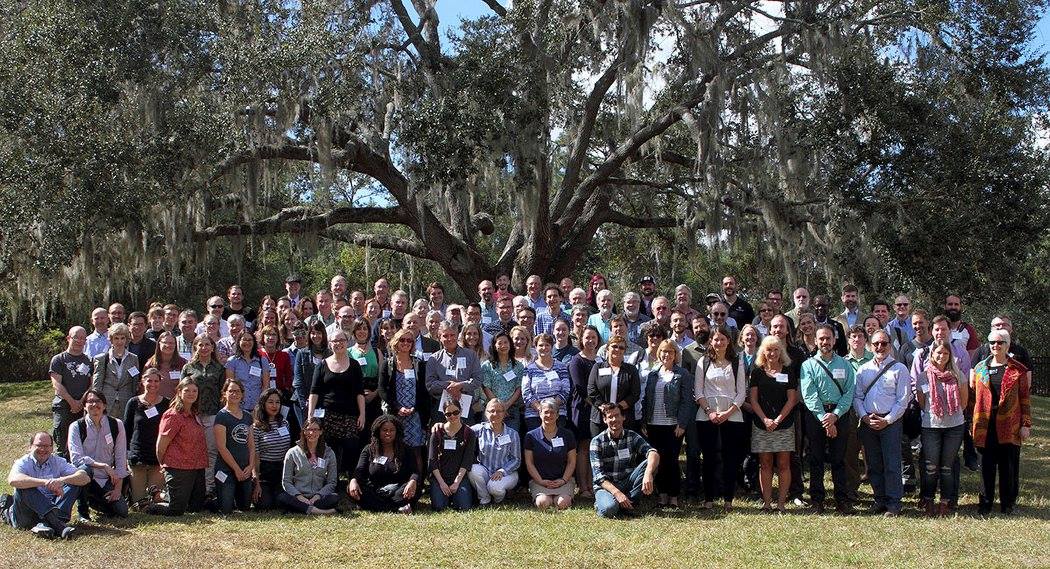
ADBC Summit 2016
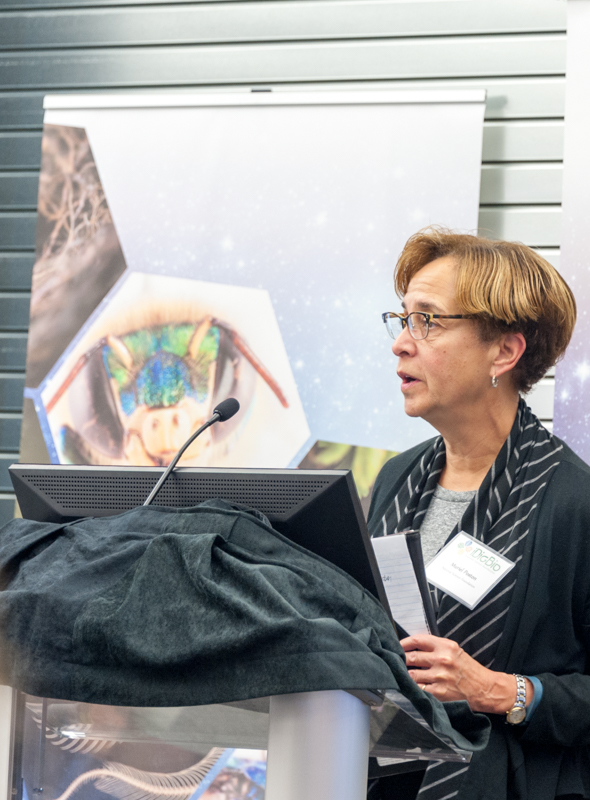 The Advancing Digitization of Biological Collections Annual Summit, hosted by iDigBio, took place in Chattanooga, Tennessee, at TechTown November 1-3, 2016.
The Advancing Digitization of Biological Collections Annual Summit, hosted by iDigBio, took place in Chattanooga, Tennessee, at TechTown November 1-3, 2016.
SPNHC 2016 One Collection: pathways to integration
 Berlin, the Museum for Naturkunde, and Botanischer Garten und Botanisches Museum proved to be an engaging setting for SPNHC 2016. Conference attendees packed the conference rooms and exhibit hall of the andel’s Hotel in Friedrichshain.
Berlin, the Museum for Naturkunde, and Botanischer Garten und Botanisches Museum proved to be an engaging setting for SPNHC 2016. Conference attendees packed the conference rooms and exhibit hall of the andel’s Hotel in Friedrichshain.
DBI Blog Post: ADBC Projects Budget Justification and Review
Are you preparing a project proposal for the Advancing Digitization of Biodiversity Collections (ADBC) program? Visit the National Science Foundations Blog for the Division of Biological Infrastructure to find information regarding ADBC budget justifications & decisions.
NSF Awards Fifth Round of ADBC Grants to Enhance America's Biodiversity Collections
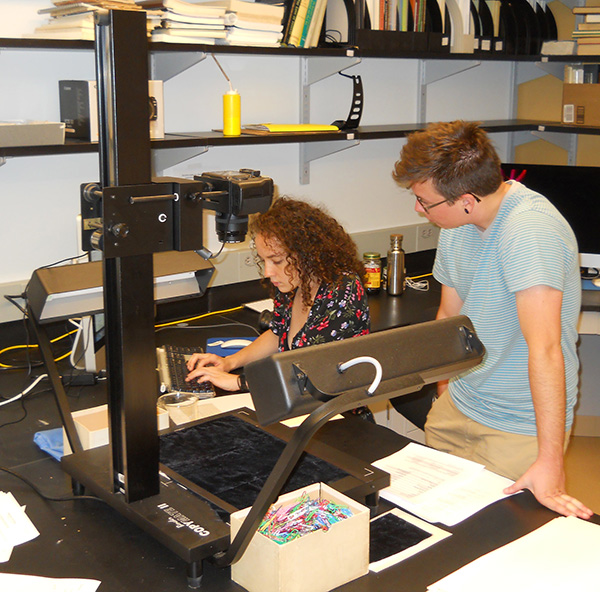
Alex Kuhn (of the University of Illinois) instructs Patty Kaishian (of Syracuse University) on how to enter label data from microfungi specimens. Their work is part of the Microfungi Collections Consortium, funded through the ADBC program. Credit: Andrew N. Miller, Illinois Natural History Survey, University of Illinois
2015 NSF Solicitation: Advancing Digitization of Biological Collections
Program Solicitation: NSF 15-576 Replaces Document(s): NSF 13-569
|
|
National Science Foundation Directorate for Biological Sciences |
Network Integrated Biocollections Alliance (NIBA)
There are more than 1600 biological collections (biocollections) in the United States. Scientists have amassed, annotated, and curated in those collections more than one billion specimens. These specimens and their associated data are maintained for research and education and to inform wise decisions about the environment, public health, food security, and commerce.
Natural History Collections as Tools for Climate Change Research
“A deeper understanding of life on Earth in the past can help us predict and possibly mitigate the worst impacts of climate change in the future.”- Barbara M. Theirs
NSF Awards Third Round of Grants to Advance Digitization of Biodiversity Collections
Press Release 13-135
NSF Awards Third Round of Grants to Advance Digitization of Biodiversity Collections
![]()
iDigBio video available!
ASB–iDigBio Digitization Symposium and Workshop Report: An Inspiring Event
Digitization was a hot topic at the 2013 Association of Southeastern Biologists’ (ASB) meeting held in Charleston, West Virginia the week of April 10. Well before the beginning of the ASB–iDigBio-sponsored digitization symposium and workshop, several conference goers had already offered important papers outlining strategies and successes in digitizing small herbaria and incorporating digitization into biodiversity field research.
NIBA Implementation Plan
Recognizing the value of biocollections for research, education, and society, the biocollections community coalesced in 2010 to develop A Strategic Plan for Establishing a Network Integrated Biocollections Alliance (NIBA). The plan issues a strong and urgent call for an aggressive, coordinated, large-scale, and sustained effort to digitize the nation's biocollections in order to mobilize their data through the Internet.
NSF ADBC Solicitation
Periodically, the National Science Foundation accepts proposals for additional Thematic Collections Networks to participate in the Advancing Digitization of Biodiversity Collections initiative. Please review the publication on NSF’s website for full details.
Prior to submitting a proposal for ADBC, please review our Notes on writing a proposal for the ADBC program at NSF.
NIBA Strategic Plan
It is important to consider that iDigBio is one portion of a larger biological digitization community. The following links provide an overview of the larger Network Integrated Biological Alliance (NIBA), which includes iDigBio, Thematic Collection Networks (TCNs), and other digitizing institutions and strategic partners. In 2015 RCN changed NIBA's name to the "Biodiversity Collections Network" (BCoN).
NSF ADBC Program Information
The National Science Foundation's Advancing Digitization of Biodiversity Collections (ADBC) program seeks to enhance and expand the national resource of digital data documenting existing vouchered biological and paleontological collections and to advance scientific knowledge by improving access to digitized information (including images) residing in vouchered scientific collections across the United States.


